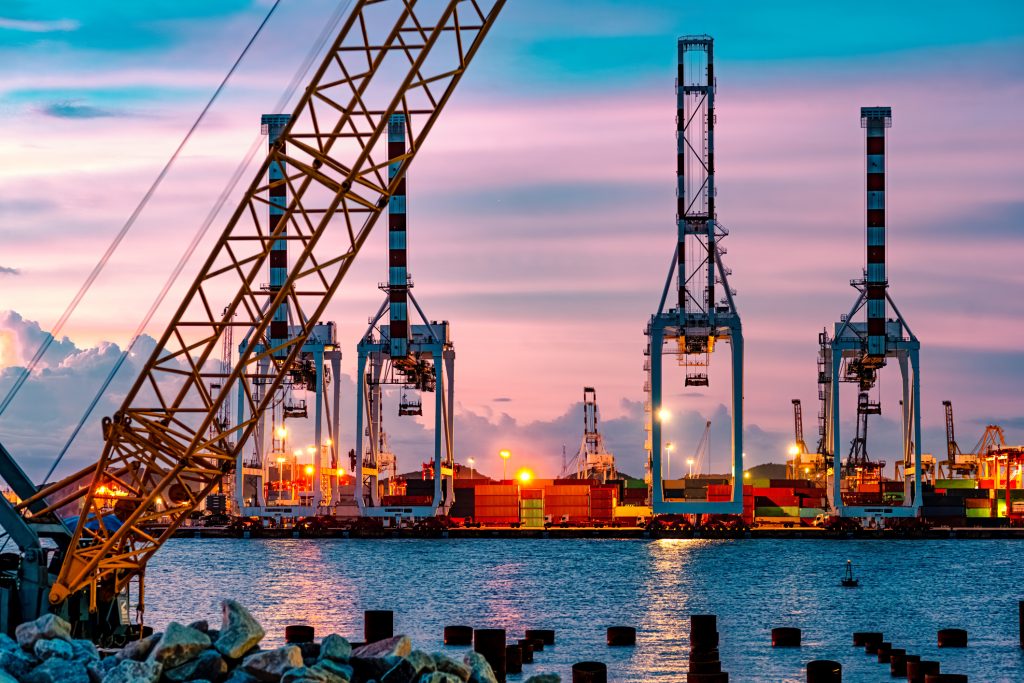Kazakhstan fostering stronger trade ties with individual member states, as well as at EU-level
This year marked 31 years since Kazakhstan and the European Union established diplomatic relations. The Central Asian country is looking to deepen cooperation not only with the EU bloc but also with individual member states.

This year marked 31 years since Kazakhstan and the European Union established diplomatic relations. The Central Asian country is looking to deepen cooperation not only with the EU bloc but also with individual member states.
Kazakh President Kassym-Jomart Tokayev recently led an official state visit to Paris, where, alongside his French counterpart Emmanuel Macron, he signed a return migration deal. It is France’s first ever such pact with a Central Asian country.
The deal comes amid a strengthening of bilateral ties between Paris and Astana. Macron spoke of a “reinforced strategic partnership” during his press declaration with Tokayev. This partnership has seen trade flows growing in the past few years.
In September, Tokayev received a German delegation headed by Chancellor Olaf Scholz on an official visit to Astana, during which the parties engaged in substantive discussions and signed three memoranda aimed at enhancing bilateral cooperation.
Scholz described Germany’s availability as a business partner for Kazakhstan and the wider Central Asian region as “essential”, highlighting the good premises for deepening economic relations.
According to Germany’s Foreign Office, trade between Germany and Kazakhstan reached €8.75 billion in 2023, and some 400 German companies are operating in the Central Asian republic.
Strategic cooperation
Earlier this year, Tokayev was on another high-level visit to Italy, with both countries looking to bolster their strategic cooperation beyond critical raw materials to include other areas of shared interest, including technology and infrastructure.
Seven intergovernmental agreements and 16 commercial memoranda were signed, including a key project for building a hybrid power plant in Kazakhstan, underscoring the expanding economic ties.
According to the Caspian Policy Center, Italy was the third top trade partner for Kazakhstan in 2023, tailing China and Russia, leaving behind other EU member states such as the Netherlands, France and Germany.
In his previous capacity as prime minister of the Netherlands, Mark Rutte was another high-profile visitor to Astana. It was seen as an important moment in giving additional impetus to the development of trade and economic relations with Amsterdam.
In the context of this partnership, the countries are forging stronger ties in water management and agriculture expertise to tackle critical challenges Central Asia faces in these sectors.
Need for diversification
All these efforts highlight Kazakhstan’s commitment to diversifying its economy. Promising areas of collaboration, such as energy, trade, transport connectivity, food security, technology, governance and human rights, are sure to keep momentum going.
The EU and individual member states see Kazakhstan as their biggest trading partner in Central Asia. The bloc is the largest foreign investor in the country, providing €54.8 billion of foreign direct investment (FDI) stock in 2022.
Tokayev, who envisions a “multi-vector” foreign policy, has previously called for the renaissance of Central Asia as a bridge between the East and the West, highlighting the increasing political weight of his country and the wider region.
This proactive effort at diversifying not only Kazakhstan’s economy but also its foreign relations is largely attributed to Russia’s invasion of Ukraine and the following geopolitical upheavals.
Kazakhstan, however, must maintain a delicate balance due to ongoing dependencies on Russia, mainly related to uranium. Moscow’s Rosatom is one of the four nuclear power companies eyeing to build Kazakhstan’s newly approved nuclear power plant.
However, experts argue the EU has an edge in maintaining its position as Kazakhstan’s biggest trading partner. The bloc enjoys a rather positive image among the Kazakhstani people and acts as a “norm-setter” on several issues of direct interest.
Expertise and technical assistance
The EU and member states individually can provide expertise and technical assistance in areas where Kazakhstan urgently needs it. To fully capitalise on this advantage, the bloc is advised to devise a comprehensive approach towards Kazakhstan.
This includes, among others, focusing on the country’s judicial reform and insisting on transparency, supporting a new social and economic strategy, and engaging with Kazakhstan on international issues, including the implementation of sanctions.
While the outcome of the Russian invasion of Ukraine will “fundamentally” determine Kazakhstan’s relationship with the Kremlin and other international partners, experts say it will also define the country’s ability to conduct social, economic, and political reforms.
This is why they encourage the EU to help Kazakhstan overcome this juncture by helping it towards a genuine domestic transformation, not allowing Russia or other external factors to take advantage of Kazakhstan’s vulnerabilities.
Edited By Brian Maguire | Euractiv’s Advocacy Lab ]









